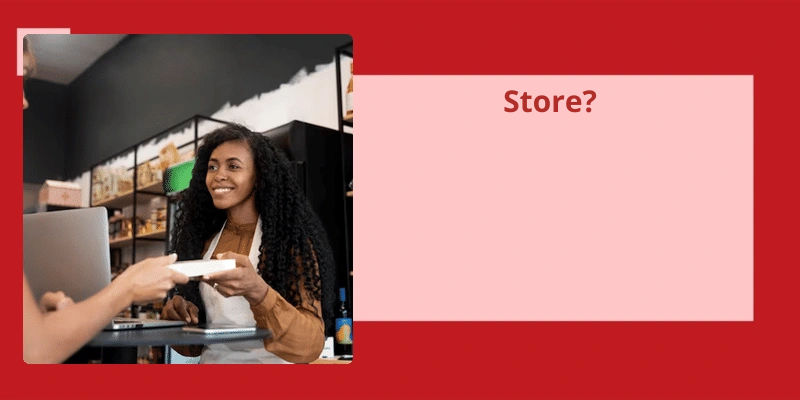As human beings, we all go through phases where we feel like we're just going through the motions of life, and everything is happening around us without our active participation. This feeling of being a convenience is often overwhelming, and it can be challenging to understand why we’re experiencing it in the first place. Perhaps it's because we've fallen into a routine that’s too predictable, or maybe we're not pursuing our passions and goals. It could also be that we're struggling with mental or physical health issues that are draining our energy and making us feel helpless.
What Does Convenience Mean in Love?
Convenience in love essentially means taking the easy way out. It’s a term thats often used to describe a relationship where one partner is more interested in using the other person for their own personal gain rather than truly loving and caring for them. In this type of relationship, one partner is simply using the other for their own convenience, which can often lead to feelings of resentment and hurt.
To be a convenience to someone is to be used for your resources, time, and energy rather than appreciated for who you’re as a person. It can feel like you’re being taken for granted and that your partner isn’t valuing your worth. This type of relationship can be damaging as it can cause you to doubt your own self-worth and value in the eyes of others.
It’s important to remember that true love isn’t based on convenience or what one partner can do for the other. It’s about having a deep and meaningful connection, where both partners value and respect each other equally. When love is based on convenience, it’s often superficial and doesn’t last long term.
Being in a relationship of convenience can be particularly challenging as it can be difficult to break away from. Often, the partner who’s using the other for their own convenience may not realize what they’re doing or may not want to acknowledge it because it’s easier for them. If you find yourself in this type of relationship, it’s important to communicate your feelings openly and honestly with your partner and make decisions that are in your best interest, even if that means ending the relationship.
Signs You Are in a Relationship of Convenience
A relationship of convenience can be identified by several signs such as not feeling emotionally fulfilled, having a lack of affection or intimacy, feeling like you’re taken for granted, feeling the relationship is one-sided, and experiencing little to no effort to maintain the relationship.
Convenience is a term that many of us use daily in various contexts. But have you ever stopped to consider what it truly means? According to the Britannica dictionary, convenience is a quality or situation that makes something easy or useful for someone by reducing the amount of work or time required to do something. In other words, convenience is all about making things simpler, more efficient, and less time-consuming. In this article, we’ll explore the concept of convenience in more detail and look at how it impacts our lives in various ways.
What Is the Full Meaning of Convenience?
Convenience is a term that’s often used to describe a situation or an object that makes life easier for people. It’s a quality that’s valued by many and is often associated with efficiency and time-saving. This definition highlights the importance of convenience in our modern lives, where time is a scarce resource and people are constantly looking for ways to make the most of it.
One of the key aspects of convenience is that it reduces the amount of effort required to perform a task. For example, the invention of the washing machine has made doing laundry much easier and less time-consuming. Similarly, the introduction of smartphones has made it easier to stay connected with people, access information, and carry out various tasks while on the go.
Time is a precious commodity in todays fast-paced world, and anything that can save time is highly valued. For example, online shopping has become increasingly popular because it allows people to purchase goods from the comfort of their own homes without having to waste time traveling to stores. Similarly, fast food restaurants have become popular because they offer quick and convenient meals that can be eaten on the go.
Convenience is also closely linked to technology. The rapid development of technology has led to the creation of many devices and systems that offer convenience to users. For example, smart home systems allow people to control their home appliances and devices using their smartphones or voice commands. This makes it easy for people to manage their homes even when they aren’t physically present. Similarly, ride-sharing apps like Uber and Lyft have made it easier to get around without having to wait for taxis or public transportation.
However, convenience isn’t always a positive thing. It can sometimes lead to laziness and a lack of physical activity. For example, the convenience of having food delivered to ones doorstep can lead to a sedentary lifestyle and poor dietary choices. Similarly, the convenience of having everything available at ones fingertips can lead to a lack of physical activity and social interaction.
It refers to a situation or object that makes life easier for people by reducing the amount of work or time required to perform a task. Ultimately, the key is to strike a balance between convenience and healthy living.
Understanding the true nature of a relationship can be challenging at times, especially when it comes to convenience. It’s easy to love someone when you’ve been together for an extended period, but it’s essential to understand if the relationship is mutually beneficial. A relationship of convenience means different things to different people, and it’s crucial to define your expectations and boundaries to avoid confusion and disappointment. In this article, we’ll explore the signs that indicate you’re in a relationship of convenience and what you can do to address them.
How Do You Know if You Are in a Relationship of Convenience?
These relationships of convenience can often be hard to detect because they can start off as genuine connections. It’s only as time goes on that you begin to realize that it’s not a relationship based on love, but rather convenience. One tell-tale sign of a relationship of convenience is that it feels more like a chore than something you look forward to. You may find yourself making excuses to avoid spending time with your partner or feeling relieved when they cancel plans.
Financial dependence can also be a sign of a relationship of convenience. If you rely on your partner to pay your bills or provide for you financially, it can be difficult to leave the relationship even if you know it’s not serving your needs. This financial dependence can lead to feelings of resentment and frustration, further damaging the relationship.
If youre not sure whether youre in a relationship of convenience, it’s important to take a step back and really assess your feelings. Are you genuinely happy with your partner, or are you just staying with them because it’s familiar and safe? Do you feel like you can be yourself around them, or do you’ve to put on a facade to maintain the relationship? By asking these tough questions, you can start to get a clearer picture of whether your relationship is based on convenience or true love.
Ultimately, it’s important to remember that you deserve to be in a relationship that makes you happy, fulfilled, and loved. If you realize that youre in a relationship of convenience, it’s OK to walk away and start fresh. It may be scary at first, but in the end, youll be better off for it. Just remember to put your own needs first and trust yourself to make the right decision for your own happiness and well-being.
Signs That Indicate You Are Staying in a Relationship of Convenience Rather Than Love
Relationships of convenience aren’t driven by genuine affection for each other. There are a few signs that can indicate you’re staying in one. These include staying in the relationship out of fear of being alone, lack of emotional connection, and little effort to spend time together or talk about personal matters. Additionally, if your partner puts little effort into making you happy or supporting you during tough times, it may indicate a relationship of convenience.
However, treating someone like a convenience rather than genuinely valuing their friendship can have negative consequences, both for the other person and for oneself. In this article, we will explore the dangers of being a friend of convenience and how to avoid falling into this trap.
What Does It Mean to Treat Someone Like a Convenience?
Treating someone like a convenience is essentially using them for your own benefit without any genuine consideration for their feelings or needs. This can manifest in many different ways, from only hanging out with someone because they’ve connections or wealth, to pretending to be friends with someone because you want them to do something for you.
Often, people who engage in this type of behavior will go out of their way to avoid spending time with their friend of convenience outside of situations where they stand to benefit. They may also be quick to drop these relationships entirely if they no longer serve a purpose.
While it may seem like using people in this way is harmless, it can actually be quite damaging. Friends of convenience often feel used and unappreciated, which can lead to resentment and hurt feelings. It can also perpetuate a cycle of shallow, transactional relationships where genuine connection and empathy are lacking.
In order to avoid treating people like a convenience, it’s important to cultivate relationships based on mutual respect and care. This means taking the time to get to know someone as a person and valuing their company for more than just what they can do for you. It also means being willing to invest time and effort into maintaining friendships, even when it isnt immediately convenient or beneficial.
By recognizing and correcting these behaviors, we can build more fulfilling, genuine relationships and lead a happier, more compassionate life.
Now that we understand what a person of convenience is, it’s important to delve deeper into the detrimental effects of living a life of convenience and the potential barriers that prevent individuals from making necessary changes.
What Is a Person of Convenience?
These individuals prioritize convenience over their own personal growth and improvement. They may settle for a mediocre job or relationship, simply because it’s easier than striving for something better. A person of convenience may also avoid confrontation or difficult conversations, opting instead to maintain the status quo.
These individuals may not even realize they’re settling for less than they deserve or are capable of. They may not believe in themselves or their ability to improve their circumstances. They may also be influenced by the opinions and actions of those around them, who also prioritize convenience over progress.
However, living as a person of convenience can have long-term consequences. They may eventually feel unfulfilled or dissatisfied with their lifes circumstances, leading to feelings of regret or resentment. Moreover, they may miss out on opportunities for growth and development, as well as miss out on relationships that could have positively impacted their life.
It’s important to note that becoming a person of convenience isn’t always a choice. Circumstances such as financial hardship or limited resources can force individuals into accepting less than ideal situations. In such cases, it’s important to seek out support and resources to help overcome these challenges and strive for something better.
A person of convenience is someone who values convenience and familiarity over personal growth and development. While this may be an easier path to follow in the moment, it can have negative consequences in the long run. It’s important to strive for growth and improvement, even when it requires effort and challenge. By doing so, individuals can live a more fulfilling and satisfying life.
The Psychological Reasons Behind Why Some Individuals Become a Person of Convenience
Some individuals become a person of convenience due to various psychological reasons. This could be due to a lack of boundaries, a desire to please others, fear of conflict, or a need for validation and acceptance. They may also lack assertiveness and struggle with saying no, often putting others’ needs before their own.
However, it’s important to take a step back and evaluate whether or not your friendship is a one-way street. In this article, we’ll explore some signs that you may be in a friendship of convenience and what steps you can take to address the issue.
How Do You Know if You Are a Friend of Convenience?
However, when it becomes a pattern of behavior, it’s a sign that the friendship may not be built on mutual respect and appreciation but on convenience. A convenience friend might only come around when they need something from you and is nowhere to be found when you need them. They may not be interested in hearing your thoughts or feelings but may only want to talk about their problems or ask for a favor they need.
To really know if someone is a convenience friend, look at the way they treat you in different situations. If they only bother to call you or reach out to you when they’ve a problem, and they’re nowhere to be found when you’re going through something, thats a red flag. They may only want to hang out with you when they’re bored, or they only contact you when they need something from you.
Convenience friends may also show signs of inconsistency. They may be your best friend one day and then suddenly drop out of your life for no apparent reason. They may cancel plans at the last minute or constantly reschedule hangouts. You may feel like youre always trying to make plans and keep the friendship going while they seem too busy or too uninterested to make an effort.
It’s also important to note that convenience friendship isn’t always intentional or malicious. Some people may not even realize that they’re being a convenience friend. They may genuinely appreciate your friendship but just have a different view of what friendship entails. It’s up to you to decide whether you want to continue such friendships or not.
How to Confront a Convenience Friend About Their Behavior
If you’ve a friend who only reaches out to you when it’s convenient for them, it’s important to address it directly. You should approach the conversation with empathy, expressing your concerns and feelings in a calm and non-confrontational manner. It’s important to establish boundaries and communicate your expectations for the friendship going forward. Ultimately, it’s up to your friend to decide whether they want to reciprocate and invest more in the friendship.
Conclusion
When we find ourselves feeling like a convenience, it may be a sign that we’re undervaluing our worth and placing too much importance on pleasing others. While it’s important to be kind and considerate of those around us, it’s equally important to recognize our own needs and limitations. It may require some self-reflection and boundary-setting to shift this mindset, but ultimately prioritizing our own well-being will lead to a more fulfilling and balanced life. By valuing ourselves and expressing our needs, we can cultivate more authentic connections and live with greater purpose and satisfaction.






